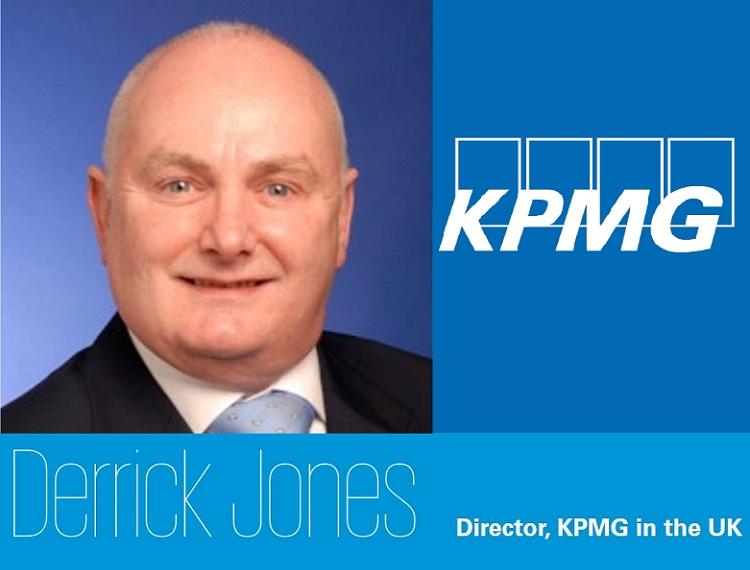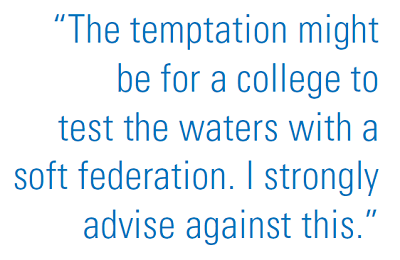Reimagine Education – Why education colleges should think vertically not horizontally

Students in a merged educational family could see a pathway for their studies from their secondary phase through A levels, further education or apprenticeships, and on to university. Employers would have a single point of contact in their area covering a wider range of course options. One which could meet all their training needs. A single organisation that would train apprentices or provide high-level managerial qualifications. Employers would no longer have to deal with many different providers trying to sell them varied training solutions.
However, the Government has made clear it wants further education colleges to merge with other similar institutions. Area-wide reviews are taking place all over England with a view to developing larger but more sustainable colleges in all regions. Because horizontal integration has government backing, colleges are rushing into this.
I think that further education colleges need to step back and consider what other options might work better for them. The best option in my mind is vertical integration: creating a group of establishments that spans educational needs over a range of ages and requirements. This could be something as simple as combining a further education college and a university. Or it could extend to welcoming a series of academies and other providers Into an educational group.
 An educational group can share resources, such as curriculum development, academic planning and staff development, across its constituent parts. It can also offer broader and better advice and guidance for young people. Stakeholder feedback can help in developing bespoke range of qualifications best suited to the local area and With a clear line of sight to employment.
An educational group can share resources, such as curriculum development, academic planning and staff development, across its constituent parts. It can also offer broader and better advice and guidance for young people. Stakeholder feedback can help in developing bespoke range of qualifications best suited to the local area and With a clear line of sight to employment.
This new structure could be great news for local authorities. The move towards greater devolution means the authorities will be given funding to spend directly on education providers. Having a single point of access for all their educational needs takes away the problem of them having to think about how to split their resources between different entitles.
I appreciate that colleges would have to give up some autonomy and merged groups would have to guard against creating unwieldy bureaucratic structures. But there is flexibility in this approach. Each new group could decide how large It wanted its vertical integration project to be. And this could change over time. It could start with the merger of two organisations and then bring in more partners over time as the new group grows in confidence.
 My experience is that this approach needs a lot of management and so comes at a heavy cost, sucking up funds that could be put to far better use. Soft federations also quickly become reliant on the personalities of the leaders of the organisations, creating a problem when they move on. So go for all out integration — don’t just play at it.
My experience is that this approach needs a lot of management and so comes at a heavy cost, sucking up funds that could be put to far better use. Soft federations also quickly become reliant on the personalities of the leaders of the organisations, creating a problem when they move on. So go for all out integration — don’t just play at it.
But, each further education college needs to choose its partners carefully. All members of the group need to have a similar ethos. Without this it would be too easy to end up watering down the mission, vision and values of the different organisations concerned, to the detriment of all.
That means thinking about what type of organisation it wants to be. Not everyone is best suited to a Russell Group connection — colleges in some areas might be better off partnering with a vocationally-based university. It’s all about finding the right fit with the right institutions for each individual college, for where It wants to be and what wants to do, in the context of the local area and its needs.
I believe that vertical integration can lead to a promising future for many further education colleges. It not only creates a larger organisation, but it produces one that has the potential to be more responsive to local needs and which delivers life-long learning now and in the future.
Derrick Jones, Director, KPMG in the UK
About KPMG LLP: A UK limited liability partnership and a member firm of the KPMG network of independent member firms affiliated with KPMG International Cooperative (“KPMG International”), a Swiss entity.











Responses